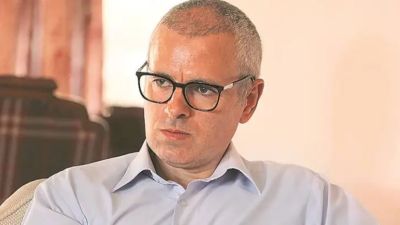📣 For more lifestyle news, click here to join our WhatsApp Channel and also follow us on Instagram
‘If it were in my hands, I would still be married’: Barkha Bisht reveals infidelity as reason behind her divorce from Indraneil Sengupta; why some struggle to leave
Barkha Bisht also admitted that while she once believed she would walk out of a marriage if faced with infidelity, experiencing it firsthand changed her perspective.
 Barkha Bisht and Indraneil Sengupta parted ways in 2023 (Source: Instagram/Mamaraazzi)
Barkha Bisht and Indraneil Sengupta parted ways in 2023 (Source: Instagram/Mamaraazzi)After 15 years of marriage, television actors Barkha Bisht and Indraneil Sengupta went their separate ways, but Barkha has now spoken about the reason behind their split — infidelity.
In a recent interview on Siddharth Kannan’s YouTube channel, she revealed that despite knowing about her husband’s affair, she stayed in the marriage for two years, trying to save it. However, Indraneil ultimately chose to leave.“It’s a choice to move out of a marriage and it was Indraneil’s choice to move out of the marriage. He chose to move out of the marriage for reasons best known to him. If it were in my hands, I would still be married. We had a good marriage,” she shared.
Barkha also admitted that while she once believed she would walk out of a marriage if faced with infidelity, experiencing it firsthand changed her perspective. “I was among those women who would say that I would walk out of a marriage if I was cheated on, but when it actually happens to you, you realise it is easier said than done. I have no shame in saying that I would have forgiven Indraneil and I even tried to save my marriage for two years after that,” she confessed.
She added that she confronted Indraneil about rumours of his affair with Bengali actress Ishaa Saha. “His answer wasn’t satisfying,” she said, adding, “Indraneil made a choice — maybe he can justify it now. He can give you a hundred reasons for why this marriage broke but his actions are not on me. He has to justify them.”.
Addressing the emotional toll, she described the pain of betrayal, “Jo dil ka tootna kehte hain — heartache — I felt it. It feels like physical pain. It was an experience I had to go through.”
But why do many people struggle to leave a marriage after discovering infidelity?
Psychologist Anjali Gursahaney tells indianexpress.com, “Before experiencing betrayal firsthand, people often assume they would immediately leave because infidelity seems like a clear-cut dealbreaker. However, when faced with it in reality, several factors make leaving difficult.”
According to her, these are:
- Emotional Attachment and Shared History: Years of love, memories, and shared experiences create a deep emotional bond that isn’t easy to sever overnight.
- Cognitive Dissonance: The mind struggles to reconcile the betrayal with the positive aspects of the relationship, making people rationalise staying.
- Fear of Loneliness: The thought of rebuilding life alone can be overwhelming, primarily if the marriage provided emotional security.
- Hope for Change: Many believe their partner can change, or they hold onto the idea of the relationship “getting back to how it was.”
- Societal and Family Pressure: Cultural or familial expectations often push people to “work things out” rather than leave.
- Children and Financial Dependency: Kids and financial stability can decide to leave more complex and challenging.
Is forgiveness in cases of infidelity always a healthy choice?
Gursahaney states, “Forgiveness is complex and highly personal. It can be healthy, but only if it’s genuine and serves the emotional well-being of the betrayed person. When done for oneself, forgiveness can be a powerful tool to let go of resentment and heal emotionally. It doesn’t necessarily mean reconciliation — it simply means releasing the hold the betrayal has on one’s heart. However, if forgiveness is forced due to social pressure, fear of being alone, or manipulation by the betrayer, it can prolong emotional distress and even enable continued mistreatment.”
Sometimes, walking away is the real form of self-forgiveness — forgiving oneself for staying in a situation that no longer serves their well-being.
📣 For more lifestyle news, click here to join our WhatsApp Channel and also follow us on Instagram






- 01
- 02
- 03
- 04
- 05





















